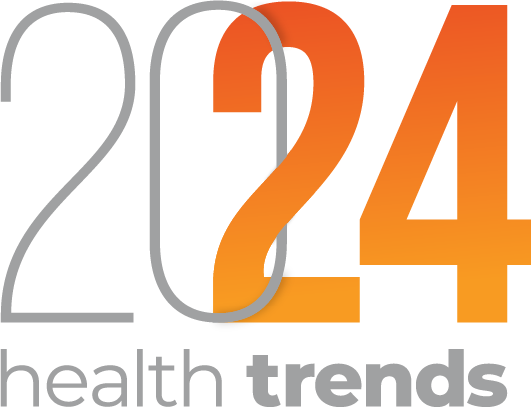The Reimbursement Case for Psychedelic Therapies Must Incorporate the Patient’s Voice
As drug developers await regulatory approval for therapies based on psychedelic compounds, payers are evaluating how well new treatments improve patients’ lives.
By Keri McDonough, Alex Wise and Andy Moniz

This is part of our ongoing content series from the Syneos Health Trends report.
Soldiers injured in battle. Survivors of sexual assault and domestic abuse. Communities losing everything to flood, fire or war. The list of life events that can cause post-traumatic stress disorder (PTSD), the persistent experience of debilitating anguish after a shattering experience, is long. In the US alone, PTSD is thought to affect 13 million people in a given year.
The nature of PTSD and its impact on patients’ participation in their own healthcare and in clinical trials creates a complicated picture for this population, and many patients are undiagnosed and untreated. The economic burden of PTSD in the US is estimated to be over $232 billion. Such numbers show the limitations of existing treatments but they don’t begin to reflect the immense financial and personal costs of undertreated mental illness.

For the first time in decades, new approaches for treating PTSD and mental health conditions are coming to market, in the form of psychedelic drug therapies. Yet as discussed in the 2024 Syneos Health Trends report, the implementation pathway for novel treatments is strewn with hurdles—not least, the need to persuade payers that the therapies deliver value to patients, families, health systems and society. While all eyes are on the first regulatory approval for novel MDMA psychotherapeutics—as early as spring 2024—FDA approval without affordable access will do little to reduce the personal and societal burden of undertreated mental illness.
Unique Reimbursement Dynamics
In November 2023, developers of psychedelic therapies and others following this space caught a glimpse of what payers may require with respect to PTSD. The Institute for Clinical and Economic Review (ICER) unveiled its plans to evaluate the health and economic outcomes of MDMA-assisted therapy (MDMA-AT) to treat the condition.
ICER has assessed ketamine-related treatments in the past, and its value assessments often shape payers’ reimbursement decisions. The Institute’s commitment of resources to psychedelic therapies is another sign that these approaches are coming of age.
ICER plans to release its initial value assessment on MDMA-AT for PTSD in March 2024, followed by its final Evidence Report in June 2024. Its value framework includes both quantitative and qualitative comparisons across treatments to take stock of the full range of benefits and harms in the eyes of both HCPs and patients.
Psychedelic Economics: Putting the Puzzle Together
For innovators, success in the psychedelic space demands economic innovation. While MDMA and other chemical compounds are not expensive to manufacture, the accompanying psychotherapy can be costly. This puzzle isn’t new. Prescriptions for other mental health treatments, including those targeting substance abuse, may be paired with therapy, thus increasing the cost and complexity of care. Failure to solve the reimbursement puzzle in these and other cases underscores the need to think beyond the pharmacy shelf.
Historically, mental health treatments have been under-reimbursed. But, working with MAPS and Compass Pathways, the American Medical Association published its first-ever CPT III codes for psychedelic-assisted therapy, which went into effect on January 1, 2024. Enabling HCPs to get reimbursed, the codes reflect how much in-person labor is required for MDMA-AT.
According to cost-effectiveness studies in 2020 and 2022, the therapy not only provides substantial clinical benefit at a time when many patients are not helped by conventional treatments like cognitive behavioral therapy (CBT), but has also proved cost-effective, enabling payers to begin saving money in as little as three years.

Voices of the Patient Community
In its scoping document, ICER notes that it has already “reviewed publicly available testimony from people with PTSD,” and gathered direct input from patients, families, researchers, clinicians, and manufacturers. The Institute will continue to engage with stakeholders, and it encourages encourages comments from all quarters.
Participating in the ICER comment process presents a unique opportunity to developers, patients and advocates. The comment period is an opening for developers to show how they engaged with patients, caregivers and advocacy groups throughout the design, execution and communication of pivotal trials.
Early in the development process, ideally before ICER announces plans to assess a treatment, developers should be building or expanding connections with representative patient communities, including mental health organizations, veterans, and groups organized around race, ethnicity and gender. This enables trial sponsors to enhance evidence dossiers with nuanced, population-specific, patient-derived insights on personal, social and cultural factors clarifying the medicine’s projected impact on daily life. We have found that patient-powered evidence supported by industry through community partnerships is more persuasive than secondary assertions and analyses by the manufacturer.
Participating in the ICER process is a good way for companies to familiarize internal development, patient access and advocacy teams with thought processes within health systems and the reimbursement community. The process will enable companies to furnish sponsors with credible insights that can reinforce communications with payers before and after regulatory review. How well companies succeed at this task will ultimately determine if, how and when patients can benefit from the new drugs.
Essential Launch Considerations
Among organizations vying for position in psychedelic psychotherapeutics, the Multidisciplinary Association for Psychedelic Studies (MAPS) plays a unique role. Neither a commercial company nor a patient advocacy organization, the nonprofit organization submitted the first new drug application (NDA) for MDMA-AT as a Breakthrough PTSD therapy in December 2023. MAPS says it is devoted to “changing the way people think of, talk about, and consume psychedelics through research, education, and advocacy.”
Like other companies and organizations vying for leadership in this space, MAPS will need to consider questions on the minds of patient community stakeholders who participated in ICER’s early information-gathering efforts. Partnering with patients is the most efficient way for manufacturers answer questions on payers minds—for example:
- Given the current understanding that MDMA doesn’t work on its own, but only in concert with psychotherapy, can industry help ameliorate what seems to be a deepening shortage of therapists and trained facilitators, especially in rural areas?
- From the clinical data, how can payers and care providers tell which aspects of the treatment (the drug, the facilitator, the “set and setting”) make a difference, and how well will the therapy work in the real world?
- How can sponsors manage placebo and ‘nocebo’ effects when trial participants are, in fact, very likely to discern whether they are in the trial’s treatment or control arm?
- What broader conclusions can we draw about risks in taking MDMA for participants, and for others gaining access if the drug becomes widely available?
We're Here to Help
Syneos Health works with sponsors and patient communities to capture patient insights and feedback throughout drug development. The methods we’ve evolved emphasize careful listening and empathy toward patients, investigators, clinicians and other engaged individuals. That includes members of relevant payer communities, as novel treatments only have an impact when they are accessible and affordable. We recognize the importance of surfacing data-driven patient insights that reflect how people living with mental health conditions think about and experience treatment value in their everyday lives.
To address the enormous mental health burden our society faces today, it’s time to pay attention to patient advocates urging health systems to think beyond standard health economic measures such as quality-adjusted life years. As a society, we must strive understand and measure how well a novel intervention might help someone in nuanced ways.
For example, measuring the number of family events attended or days spent at work is important, but drug developers may have no window onto how individuals think about the quality of time spent a work or with family. Post-therapy, is the individual gaining confidence when engaging in conversation? Is he or she more willing to approach a scenario that previously triggered symptoms? Learning the answers might afford a deeper sense of what it means when a treatment “works.” Evolving how we think about the value and metrics around mental health interventions from a first-person perspective will lead to more effective therapeutics and will go a long way toward reducing both individual and systemic costs.
Contributors
Keri McDonough
Vice President, Medical and Scientific Strategy
Syneos Health
Alexandria Wise, PhD
Senior Vice President, Therapeutic Strategy and Innovation
Syneos Health
Andrew Moniz
Vice President, Therapeutic Strategy and Innovation
Syneos Health

